- News
- Reviews
- Bikes
- Accessories
- Accessories - misc
- Computer mounts
- Bags
- Bar ends
- Bike bags & cases
- Bottle cages
- Bottles
- Cameras
- Car racks
- Child seats
- Computers
- Glasses
- GPS units
- Helmets
- Lights - front
- Lights - rear
- Lights - sets
- Locks
- Mirrors
- Mudguards
- Racks
- Pumps & CO2 inflators
- Puncture kits
- Reflectives
- Smart watches
- Stands and racks
- Trailers
- Clothing
- Components
- Bar tape & grips
- Bottom brackets
- Brake & gear cables
- Brake & STI levers
- Brake pads & spares
- Brakes
- Cassettes & freewheels
- Chains
- Chainsets & chainrings
- Derailleurs - front
- Derailleurs - rear
- Forks
- Gear levers & shifters
- Groupsets
- Handlebars & extensions
- Headsets
- Hubs
- Inner tubes
- Pedals
- Quick releases & skewers
- Saddles
- Seatposts
- Stems
- Wheels
- Tyres
- Health, fitness and nutrition
- Tools and workshop
- Miscellaneous
- Buyers Guides
- Features
- Forum
- Recommends
- Podcast
review
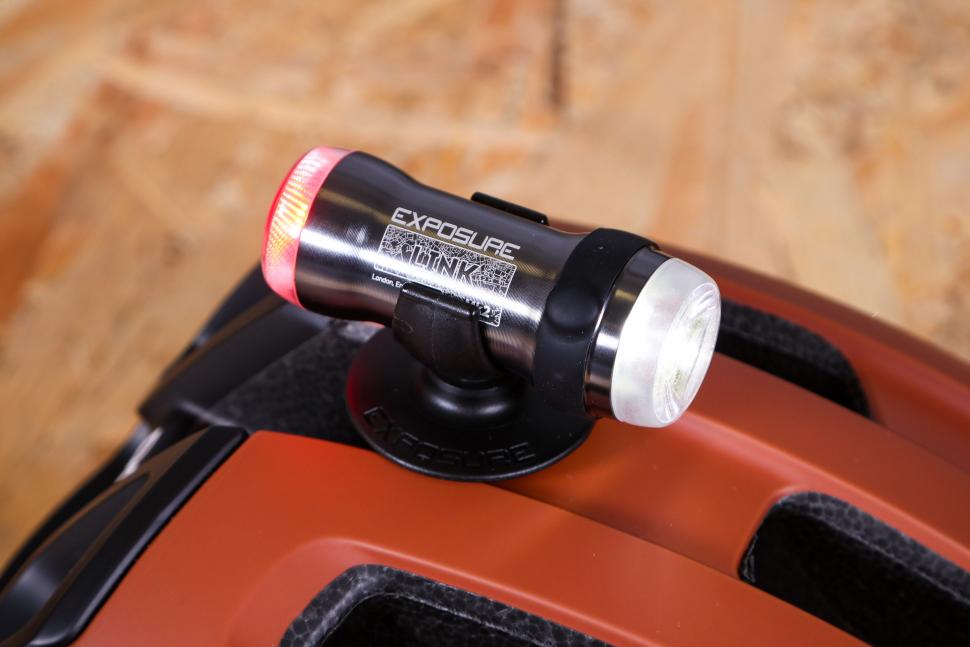 Exposure Link DayBright MK2
Exposure Link DayBright MK2£70.00
VERDICT:
A little pricey, but a great quality helmet light with bright output and decent battery life
Excellent quality
Light
Bright
Micro-USB charging
Awkward mounting
Weight:
47g
Contact:
At road.cc every product is thoroughly tested for as long as it takes to get a proper insight into how well it works. Our reviewers are experienced cyclists that we trust to be objective. While we strive to ensure that opinions expressed are backed up by facts, reviews are by their nature an informed opinion, not a definitive verdict. We don't intentionally try to break anything (except locks) but we do try to look for weak points in any design. The overall score is not just an average of the other scores: it reflects both a product's function and value – with value determined by how a product compares with items of similar spec, quality, and price.
What the road.cc scores meanGood scores are more common than bad, because fortunately good products are more common than bad.
- Exceptional
- Excellent
- Very Good
- Good
- Quite good
- Average
- Not so good
- Poor
- Bad
- Appalling
The Exposure Link DayBright MK2 is a very well made helmet light that lives up to the company's reputation for quality. Output is great and battery life is decent, though the mounting system is a little awkward to set up.
We haven't reviewed many helmet lights, but check out our guide to the best bike lights for more options you can attach to your bike, front and rear.
Exposure is a brand synonymous with construction quality, and this light is no different. You can see the machining lines where the housing has been cut from a single piece of metal, and it's likely to last for a long time, helped by the thick rubber seal that has to be moved out of the way in order to access the charging port.
The idea behind the Link DayBright MK2 is to make a rider as visible as possible in a busy city environment. It's a front and rear light combined into one, with a bright output that'll get you noticed, mounted as high as possible so you can be seen by all road users.
Wearing this on my helmet, lighting up wherever I turned my head, I really felt confident that my visibility was increased.
Output and modes
The maximum output is 200 lumens at the front and 40 at the rear, with a lot of different options for modes, front and rear, including both constant or pulsing, one pulsing with the other constant, or one pulsing or constant while the other is off.
You also get three different settings, effectively high, medium and low. To set these, when the light is off you hold down the power button and it begins flashing; if you release the button after the first flash it will be in the brightest mode, two flashes for medium, and if you let go after the third flash it will be the low mode.
My favourite output is the pulse front and rear, in either medium or low, which gives run-times of 7 and 15 hours respectively.
If you've ever used an Exposure light before, or seen someone using one, chances are you'll understand how good this mode is. It's almost a jarring flash with specifically designed gaps between flashes to ensure that the light draws the attention of all road users. It certainly isn't one of those fade in and fade out pulses that some brands offer.
Mounting
Using this light for the first time, I was a little confused by how to mount it. The mount unscrews to fit through a vent hole and then sandwiching the helmet. But when I tried to do up the 5mm hex bolt from the inside of the helmet, I wasn't able to get the non-ball end of a hex key in because of the curvature of the helmet, and the plastic flexed and bent if I used the ball-end... to the point I wasn't able to tighten it. I finally resorted to a multi-tool and that did the job, but I can't help thinking Exposure could devise a better method.
Once the light was done up, I had absolutely no issues with the mount. It hasn't come loose once, and has held the light nice and tightly no matter what kind of riding I've done, even some super bumpy mountain biking.
I was also pleasantly surprised with how little I could feel it when it was on my head. I expected it to cause some discomfort, but for the most part I couldn't even tell it was there. At 47g it really causes very little difference to how your head feels, which is great.
Battery life & charging
Run-times range from one hour in the brightest constant, to 23 hours for a low pulse from the front or rear only. That's not hugely impressive, but given that the battery is effectively powering two lights, it's not that surprising. You might end up having to recharge after every ride, but that'll depend on which modes you're using.
It's pretty easy to tell how much power is remaining – when you turn the light off it will light up between red and green to give you an indication of how long you have before it needs to be charged. I wish there was a way to know the level while the light is on, but as it sits on your head it would be quite a challenge.
Exposure gives a claimed charge time of three hours, which seemed about right, but I was super annoyed to find out that the light has a micro-USB charging port. I wish all cycling manufacturers would embrace USB-C and only design products with it. If these super small lights from Knog can use USB-C, I don't see why the Link Daybright can't...
Value
At £70, this isn't a budget option, but you are getting Exposure quality.
You can spend more – for another £20 you could get the 450-lumen Link+ Mk3 Front and Rear Combo with DayBright, which Nick reviewed earlier this year. It's a little heavier, at 90g, but it's one for seeing with as well as being seen.
For just being seen, though, you can spend a lot less: Siobhan was very impressed with the Brightside Topside Helmet Light she reviewed in 2017 – it's still £29.99, a little heavier than the Exposure at 66g, but it's rechargeable, and puts out up to 100 lumens at the front, 30 at the rear.
Or there's the very slightly cheaper Lezyne Femto Drive Duo at £28, which weighs 51g and takes two CR2032 batteries either end. Stu described it as 'quite punchy' in 2021, but it's a very different animal to the Exposure.
Conclusion
Overall, if you ride in busy built-up areas in the dark or dusky daylight, the Link DayBright MK2 will be a real benefit. The output is up there with the best I've seen in a small light, it has a solid feeling mount, and the quality is excellent. Yes, you have to pay for that, but it justifies it. I'd recommend it to anyone who wants just that little more visibility.
Verdict
A little pricey, but a great quality helmet light with bright output and decent battery life
If you're thinking of buying this product using a cashback deal why not use the road.cc Top Cashback page and get some top cashback while helping to support your favourite independent cycling website
road.cc test report
Make and model: Exposure Link DayBright MK2
Size tested: 200 lumen front, 40 rear
Tell us what the light is for, and who it's aimed at. What do the manufacturers say about it? How does that compare to your own feelings about it?
Exposure says: "Lightweight and powerful, the Link is the perfect way to get noticed on busy city roads. Mounting the light up high on the helmet and combined with the DayBright Pulse Pattern means it is not hidden from view by traffic or other distractions and will cut through any environment . With 360-degree visibility from a single unit, it gives you the advantage of being noticed first."
Tell us some more about the technical aspects of the light?
From Exposure:
LEDs 1 x White XPG/1 x XPE-RED
IP Rating IP6
Max Lumens 200/40
Battery 850 mAh Li-Ion
Runtime 1 - 16 Hours (FL)
Charging Time 3 Hours
Weight 45g
Material Anodised 6063 Aluminium
Length 70mm
Head Diameter 28mm
In The Box Link DB MK2, Helmet Mount, Micro-USB Charge Cable, QS Guide
Rate the light for quality of construction:
9/10
As with other Exposure products, this is very well made.
Rate the light for design and ease of use. How simple was the light to use?
7/10
It is easy to clip in and out of the mount, while remaining firmly in there during use. I found the controls slightly confusing, with a single button, but once worked out it is easy to use.
Rate the light for the design and usability of the clamping system/s
6/10
Doing the clamp up was awkward, requiring a multi-tool as it wasn't possible with a full size hex key.
Rate the light for waterproofing. How did it stand up to the elements?
9/10
I've taken it through some wet rides with no issues.
Rate the light for battery life. How long did it last? How long did it take to recharge?
5/10
Nothing special in most modes, but it's effectively powering two lights so not a surprise; a longer life would be good though.
Rate the light for performance:
7/10
I felt that this light definitely added to my safety when I was riding on darker and low visibility days.
Rate the light for durability:
8/10
The manufacturing of Exposure products is great and I see no reason why this won't last a long time.
Rate the light for weight:
8/10
At only 47g it isn't something you really feel on your head most of the time.
Rate the light for value:
5/10
At £70 it's more expensive than most helmet light combos we've tested – aside from its big brother, the £90 Link+ Mk3 Front and Rear Combo with DayBright – but it's brighter than those, too, and very high quality.
Tell us how the light performed overall when used for its designed purpose
It performed very well, making me more visible and, hopefully, safer.
Tell us what you particularly liked about the light
I like the pulse mode – it is a very eye-catching pattern which is hard to miss, and great as a daytime flash.
Tell us what you particularly disliked about the light
The use of micro-USB rather than USB-C for charging.
How does the price compare to that of similar products in the market, including ones recently tested on road.cc?
It's more expensive than other helmet light combos we've tested, but you are getting Exposure quality and more lumens.
Did you enjoy using the light? Yes
Would you consider buying the light? Maybe
Would you recommend the light to a friend? Yes
Use this box to explain your overall score
It's a good light for being seen by, with a great pulse mode and plenty of others to choose from. Battery life is decent rather than amazing, and it's quite a high price, but the quality is high too.
About the tester
Age: 22
I usually ride: Canyon Aeroad My best bike is:
I've been riding for: 10-20 years I ride: Every day I would class myself as: Semi pro
I regularly do the following types of riding: road racing, commuting, touring, club rides, fixed/singlespeed, mtb,
Latest Comments
- don simon fbpe 10 min 14 sec ago
Who'd've thought that a certain whinging section (right whingers get uppity for calling them what they are) of society would resort to division,...
- Smoggysteve 12 min 51 sec ago
Sorry, I don't buy the argument about large cars. I drive an Audi Q5, a car I bought purely due to my partner having a disability. It's easy to...
- Exup 1 hour 42 min ago
At least some justice is being done........
- BIRMINGHAMisaDUMP 1 hour 52 min ago
I imagine the Police treat bike theft as an insurance issue rather than a criminal issue. Can't blame them to be honest. The best thing is to use...
- David9694 2 hours 19 min ago
Police launch investigation into destruction of barber shop in Hythe High Street...
- ktache 10 hours 49 min ago
I'd love for them to put a number on that "inappropriate speed"
- Nick T 11 hours 42 min ago
They need to use some harder material for the cleat retention clip really, that's worn out long before any bearing has had a chance to fail on...
- yiipeeia 14 hours 32 min ago
I am 67 and I cycle with two groups during the year The Haddenham Easyriders International who ride during the summer on Thursday evenings, and The...
- don simon fbpe 14 hours 43 min ago
Brexit is a wholly selfish act....

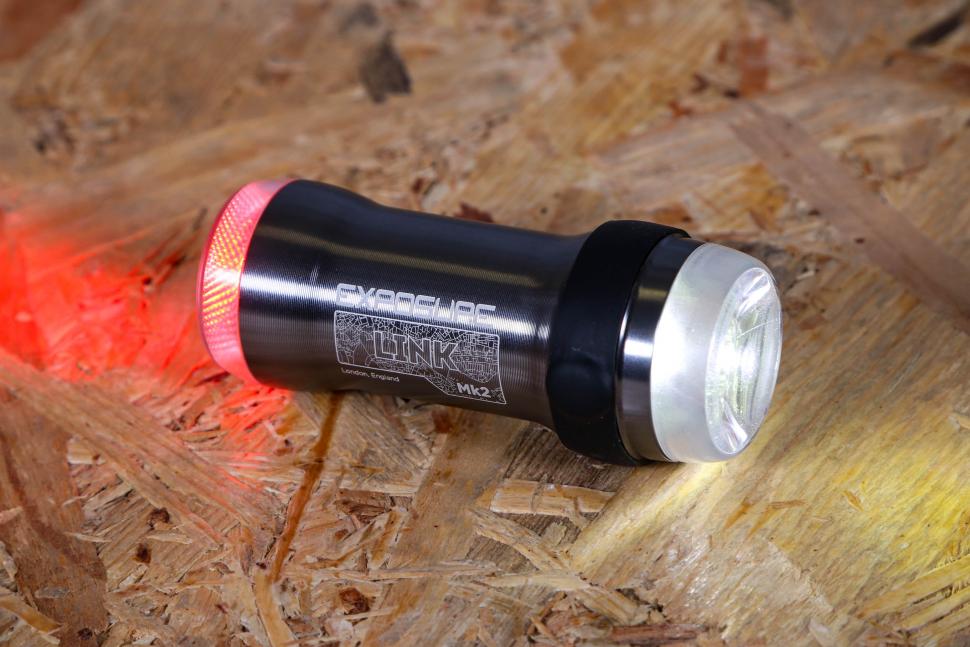







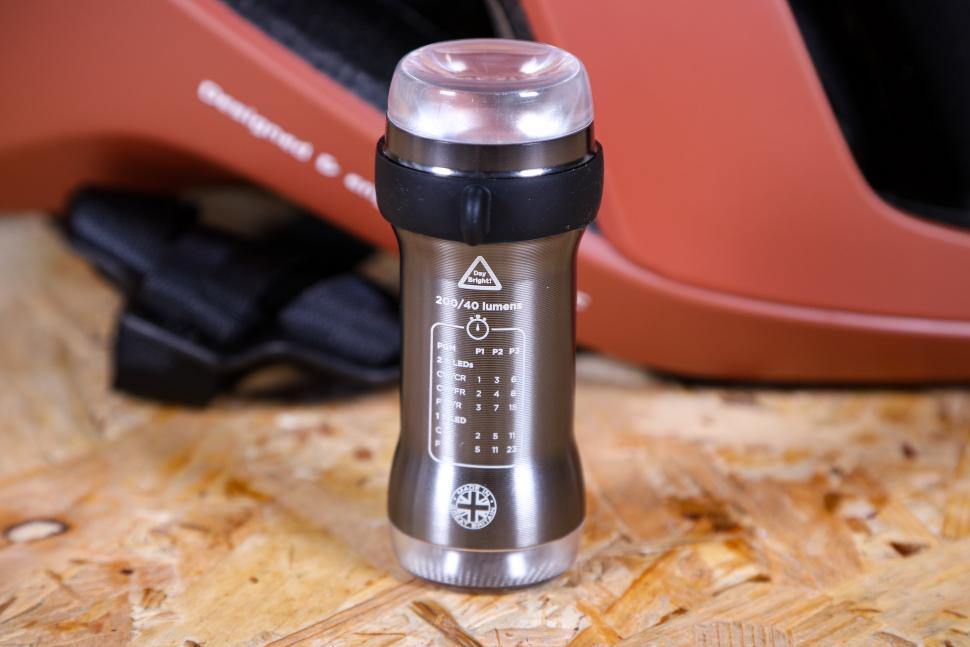

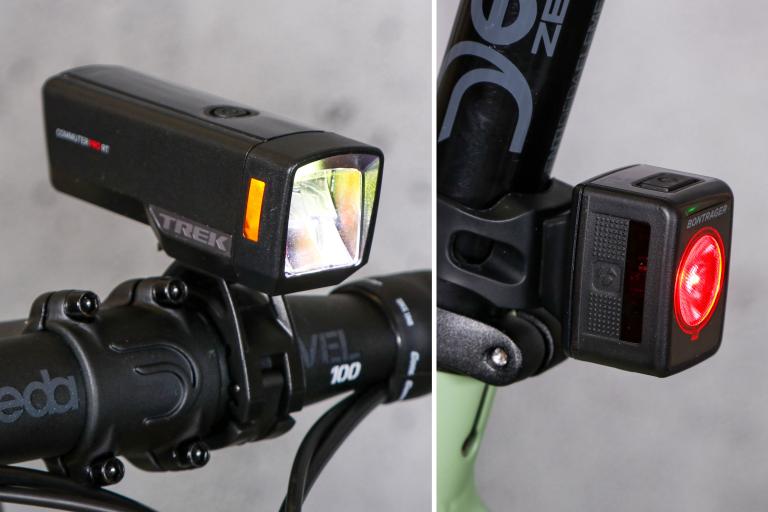
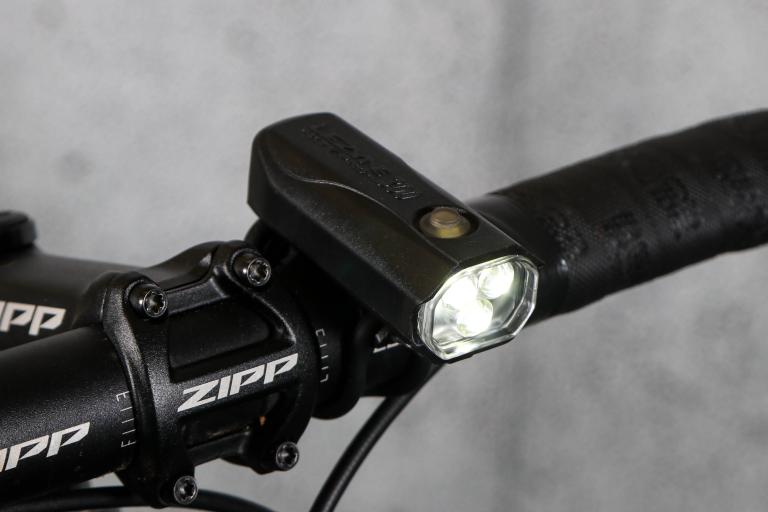
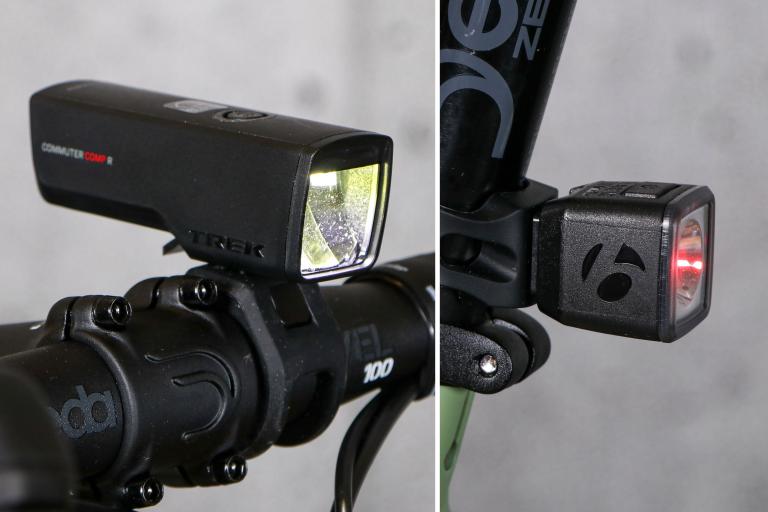
Add new comment
5 comments
Completely the wrong place to have a light, if it's your only light. Drivers are conditioned 'look' for lights at somewhere between two and four feet off the ground, a helmet ounted light, at what, five or six feet up could easily be missed. On a similar vein, where is that light pointing? If either your head is or you've angled it on your helmet so the front light is lighting up the road, then the back is pointing to the sky, and what use is that? . . All that said a light that moves might catch the eye. Tough one really.
I always assumed the point of the plastic bolt was to prevent overtightening (potentially damaging the helmet) by deliberately flexing if you apply too much torque.
And that there will be failure if in a crash.
There's a trick to doing up the Exposure helmet mount - once the plastic bolt is in, then you can tighten the top portion without needing to use tools.
I was about to buy another Exposure light but their website is down at the moment.
If it's one we've reviewed, there should be a buying link in the review to the cheapest deal... if that helps.